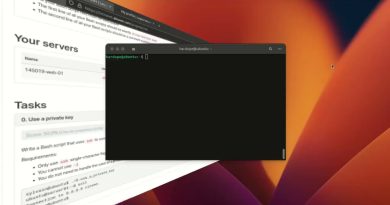How to create a public API / Server that runs 24/7 on PythonAnywhere for FREE
Hey guys! How’s it going? In this video I’ll be showing you how to create a public api / server using Python on PythonAnywhere. Cool right? Let me know how it goes in the comment section below!
by Indently
linux web server




if this works for me i'll follow you!
Very solid and valuable 💎🙏🏽 Thank you!
Thanks a lot
Thank you this tutorial helped me alot i liked and subscribed and i hope you have a great day
Same scenario is mine i have created my own API but for user friendly purpose i created this api in flask that will run on my pc so that i can send and receive data between db running locally on my pc and flask app running on pythonanywhere but i i dont know why flask app is not connecting to my API
getting proxy error in error.logs
Absolute lifesaver
Please give me example for fastAPI on pythonanywhere
Very nice!!!!
Thank you so much for the tutorial!
how can i contact you
Thanks for putting this together. This opens a lot of low cost possibilities.
imPOAT
Thank you, so much!
"sauce code"
Does it work well with selenium?
(please speak from experience)
For what exactly is this public API for. Like what can you do with it etc.
How to install additional packages if needed like tenserflow and keras???
11:34 Can it be automated with python so that it hits the button?
Good thing about Python is that you can write a simple script with Selenium to renew it every month and host it 😉
Is there any bandwidth limit in python anywhere?
how can we tackle the allow CORS issue?
thanks for your help
Very precise. Thank you very much for helping me in writing my first API.
please help me. how can I read or get image from image_url with passing in argument just like what you did when you input text from url as an argument. Thank you in advance.
This is so useful for me. quick and straightforward while being understandable, thank you so much 🙂
please keep on uploading, I see you're active and im glad to see that
OR WHO CAN HELP ME DEVELOP THIS
CAN YOU HELP ME DELEVELOP THIS PLEASE
source code of rest api
Dude, your uploading to this date almost everyday, wtf No life guy
from flask import Flask
from flask import request
import json
import time
app = Flask(__name__)
@app.route('/',methods = ['GET','POST'])
def handle_request():
text = str(request.args.get('input'))
character_count = len(text)
data_set = {'input':text,'timestamp':time.time(),'character_count':character_count}
json_dump = json.dumps(data_set)
return json_dump
what programm do you use for python
interesting vps! do they offer database storage with the beginner account?
Lets gooo, finally i can host my hentai api 😎
Yes!
I'm the first to comment and like.